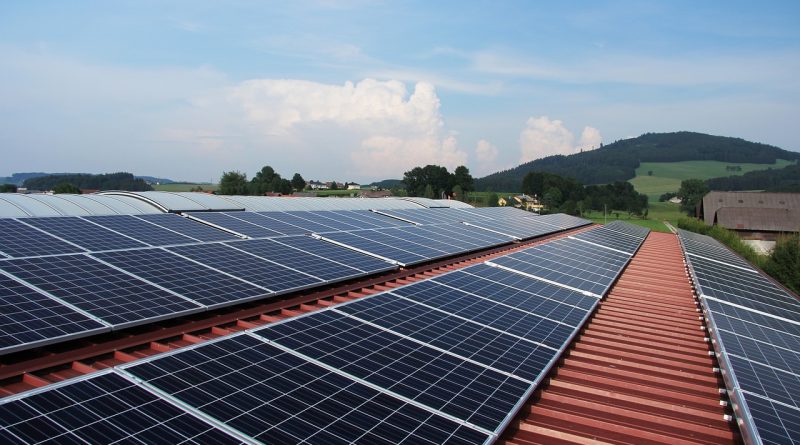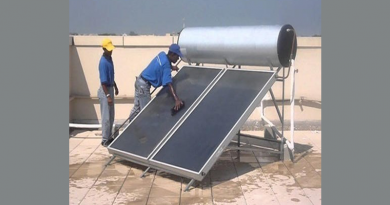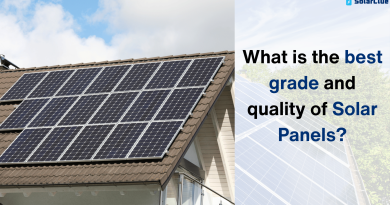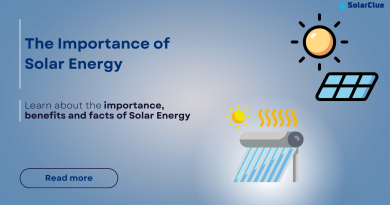On-Grid vs. Off-Grid Solar: Choosing the Best Option
Solar energy has become an increasingly popular choice for powering homes and businesses alike. As the world moves towards a more sustainable future, harnessing the power of the sun seems like a logical step. However, when it comes to utilizing solar energy, the decision between on-grid and off-grid systems can be a difficult one. In this blog, we will discuss the pros and cons of both on-grid and off-grid solar systems to help you make an informed decision.
Table of Contents
On-Grid Solar Systems
On-grid solar systems, also known as grid-tied systems, are connected to the main electrical grid. These systems allow users to generate their own electricity using solar panels and also take advantage of the grid’s electricity when needed. One of the key advantages of on-grid solar systems is the ability to sell excess electricity back to the grid, earning credits or even monetary compensation.
Pros of On-Grid Solar Systems
1. Cost savings: With an on-grid system, you can significantly reduce, or even eliminate, your monthly electricity bills. This can lead to substantial long-term savings.
2. Reliable power supply: On-grid systems provide a stable power supply as they can seamlessly switch to drawing electricity from the grid whenever needed, ensuring uninterrupted energy access.
3. Reduced upfront costs: Since on-grid systems do not require expensive energy storage batteries, the initial installation costs are relatively lower compared to off-grid systems.
4. Incentives and rebates: Many governments and utility companies offer incentives and rebates to encourage the adoption of renewable energy, making on-grid systems more financially appealing.
5. Scalability: On-grid systems can be expanded easily to meet increasing energy demands by simply adding more solar panels to the existing system.
Cons of On-Grid Solar Systems
1. Dependency on the grid: On-grid systems rely on the main electrical grid, which means that a power outage on the grid will also result in the loss of electricity for the user.
2. Limited energy autonomy: On-grid systems do not store excess energy generated during the day for later use. Therefore, during nights or periods of low solar productivity, users will need to rely on grid electricity.
3. Vulnerability to policy changes: Government policies and regulations related to solar energy and net metering can change, potentially affecting the financial gains associated with on-grid systems.
4. Lack of environmental sustainability: Although on-grid systems reduce individual carbon footprints, the reliance on the grid means that electricity generation is not entirely independent of fossil fuels or non-renewable energy sources.
Off-Grid Solar Systems
Off-grid solar systems, as the name suggests, are not connected to the main electrical grid. These systems are designed to provide energy independence in remote areas or for individuals looking to completely disconnect from the grid. Off-grid systems consist of solar panels, batteries for energy storage, and an inverter to convert the stored energy for use.
Pros of Off-Grid Solar Systems
1. Energy independence: Off-grid systems provide complete self-sufficiency, allowing users to generate and store their own electricity without reliance on the grid. This is particularly beneficial in remote areas with no access to utility power.
2. Increased resilience: Off-grid systems are not affected by grid outages, making them more reliable during emergencies or natural disasters.
3. Environmental Sustainability: Off-grid systems reduce dependency on non-renewable energy sources, promoting a greener and more sustainable lifestyle.
4. Flexibility in location: Off-grid systems can be installed anywhere, making them suitable for remote cabins, camping sites, or areas without a stable electrical infrastructure.
Cons of Off-Grid Solar Systems
1. High upfront costs: Off-grid systems require expensive energy storage batteries as they need to store excess energy for use during periods of low solar productivity. This adds to the initial installation costs.
2. Maintenance and monitoring: Off-grid systems need to be carefully monitored and maintained to ensure optimal performance of the batteries and other components. This can require additional time, effort, and expertise.
3. Limited energy capacity: Off-grid systems have limitations on the amount of energy they can generate and store due to the size and capacity of the battery bank. This can restrict the usage of energy-intensive appliances or multiple devices simultaneously.
4. Battery lifespan and replacement: Energy storage batteries have a limited lifespan and will need to be replaced periodically, adding to the long-term costs of off-grid systems.
Conclusion
When it comes to choosing between on-grid and off-grid solar systems, there is no one-size-fits-all solution. The decision depends on various factors, including energy requirements, location, budget, and personal preferences. On-grid systems offer cost savings, reliability, and scalability, while off-grid systems provide energy independence, resilience, and environmental sustainability. Ultimately, it is essential to evaluate your specific needs and circumstances to make an informed decision that aligns with your goals and aspirations for harnessing the power of solar energy.
Ready to power your life with solar? Explore on-grid and off-grid options with SolarClue®. Make the right choice for sustainable energy.
Frequently Asked Questions
On-grid systems are connected to the utility grid, while off-grid systems operate independently, relying on batteries for storage.
Generally, on-grid systems are more cost-effective initially, but the long-term savings depend on individual circumstances.
While possible, it requires additional components and considerations. Off-grid systems are specifically designed for independence.
On-grid systems rely on the continuous operation of the grid, while off-grid systems provide autonomy and can be more reliable in remote areas.
Most on-grid systems shut down during power outages to prevent backfeeding electricity into the grid. Off-grid systems provide power independently.
Selling excess energy is typically associated with on-grid systems, as they can feed surplus power back into the grid.
Off-grid systems are often more suitable for remote areas without access to the utility grid, providing energy independence.
Both contribute to sustainability, but off-grid systems are self-contained, reducing dependence on centralized power sources.
Both require regular maintenance, including cleaning solar panels and checking components for optimal performance.
While possible, it may involve system modifications. Consult with professionals to determine the feasibility of such a switch.




